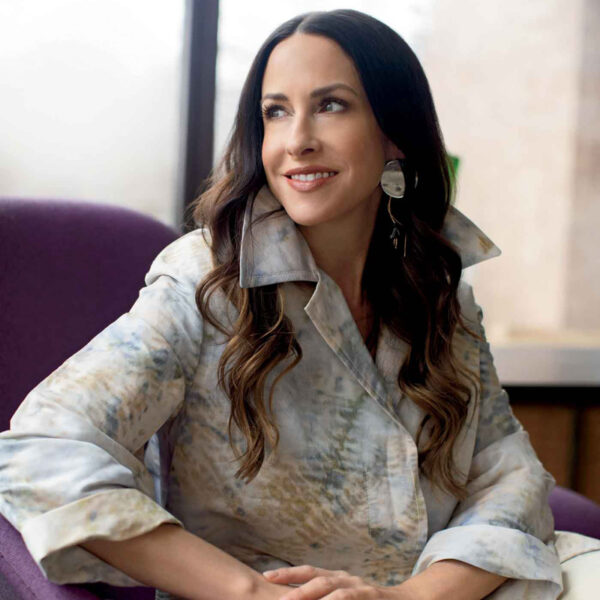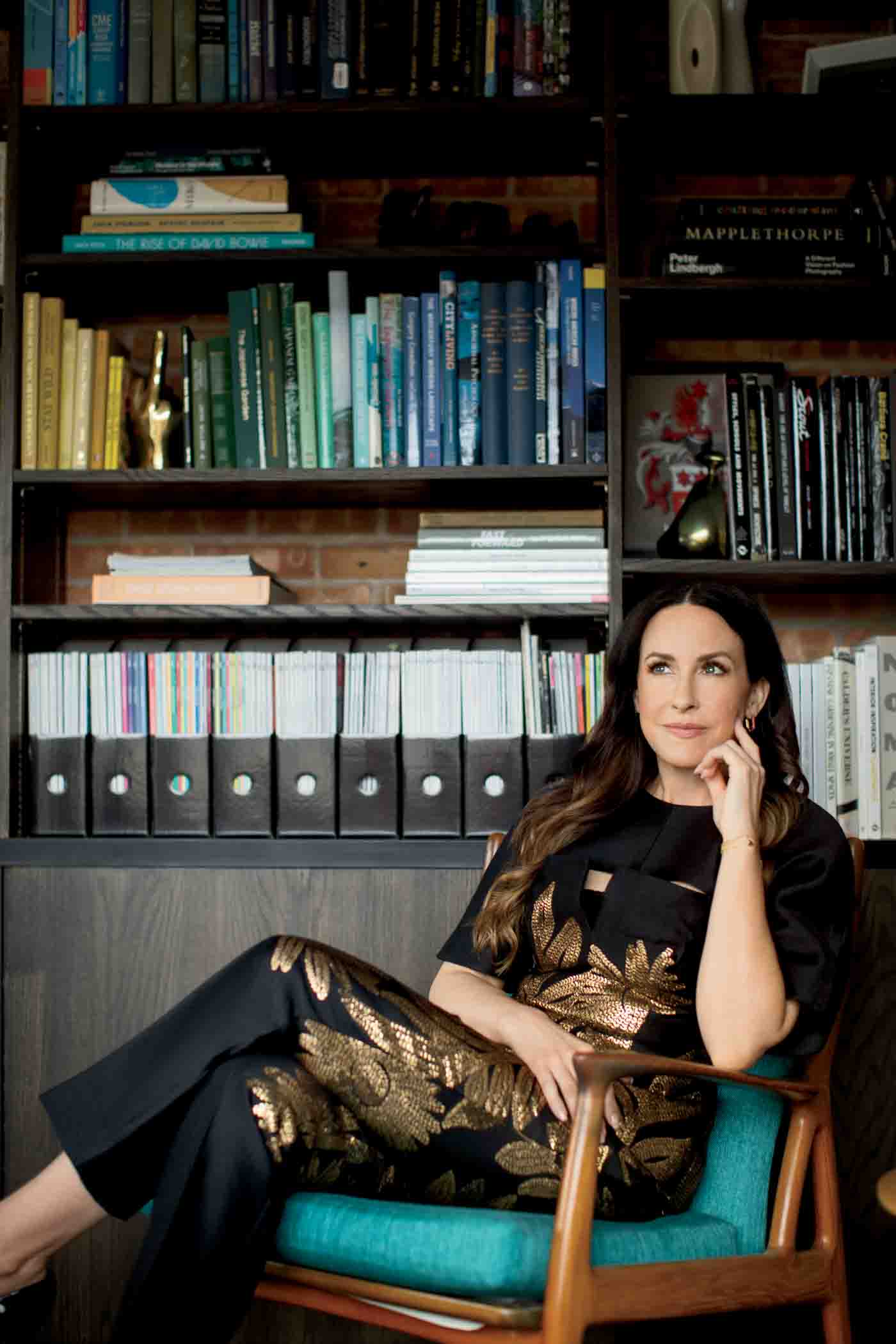BEGIN AGAIN
By Tricia Despres
PHOTOGRAPHY BY MARIA PONCE BERRE
HAIR AND MAKEUP BY LEANNA ERNEST
STYLING BY THERESA DEMARIA
Londergan in Lafayette 148 New York, neimanmarcus.com
By Tricia Despres
PHOTOGRAPHY BY MARIA PONCE BERRE
HAIR AND MAKEUP BY LEANNA ERNEST
STYLING BY THERESA DEMARIA
Londergan in Lafayette 148 New York, neimanmarcus.com

There was a time when people chose to experience trauma-related pain behind closed doors. Rather than go to therapy, people chose silence, struggling to find ways to exist while their hearts broke.
But thankfully, those days are long gone.
“Not only is there more access to therapy now, but it’s become much less stigmatized,” explains Dr. Kara Londergan of Hohm Psychotherapy. “I have teens who come to me now who think, ‘therapy is cool.’ This is just part of what we do.”
This openness to therapy is much needed for people of all ages, as society searches for a way to rebound following the chaos of the pandemic.
“We were very isolated at that time, and isolation in humans is very traumatic,” Dr. Londergan recalls. “We cannot survive without connection to others. Connection is where we heal and thrive as human beings. A lot of anxiety came from COVID, and the isolation we all felt was traumatic for sure.”
Yet, the heaviness around the word “trauma” is enough to make people still feel a tad uneasy. Dr. Londergan hopes educating people about the ubiquity of trauma will ease their apprehensions.
“Trauma is defined as anything that overwhelms our ability to cope,” says Dr. Londergan, a graduate of Adler University. “Anything we have gone through in our life that has overwhelmed us is stored in our body. And so, anxiety comes from those experiences. But when you go back to that core wound that’s stored in your body from that traumatic experience and work on resolving that, then the anxiety ultimately gets less intense.”
Dr. Londergan says she often uses body-based approaches to treat anxiety. “I use what’s called a bottom-up approach because I like to hit at the core of what’s going on,” expresses Dr. Londergan. “You’re starting from the bottom of the wound and then you’re going up into the body and the beliefs we hold inside. From there, we examine how these beliefs come out in the behaviors, and how these behaviors show up in our relationships.”
The skilled team at Hohm Psychotherapy also provides their clients the chance to partake in EDMR, an increasingly popular form of psychotherapy that involves eye movement desensitization.
“It’s the most effective form of trauma therapy,” she explains. “Research shows that when we go through any sort of overwhelming traumatic experience, it’s stored in our right brain. The process of EMDR is bilateral stimulation. It hits at the root of the activation in your body and where the experiences are stored.”

And it doesn’t resemble talk therapy in any way.
“It’s very structured,” continues Dr. Londergan. “You’re creating a target plan. How is the anxiety showing up physically? What we’re doing is we’re desensitizing the stored experience and the core belief. So, we’re moving the experience from our right brain to our left brain where it becomes just more logical and interwoven and less activating.”
No matter what treatment one chooses, the most important thing is that the pain is treated because the physical challenges can be many.
“When we have unhealed trauma, we have suppressed emotions,” says Dr. Londergan. “They contribute to very specific illnesses over time. The more that we take care of our mental health and express our emotions and feel connected, the less we’re going to have to take the pills for this thing or that thing.”
And access to these much-needed therapeutic services has never been easier. “Clients feel more comfortable going through Zoom and having a telehealth appointment rather than traveling and taking time out of their day to focus on therapy,” observes Dr. Londergan.
“I’ve heard people say they are too old to do the work, but the truth is that you’re never too old to begin again. And when you start to do the work, it’s like going to the gym, you’re exercising a new muscle, and no, it’s not the most fun. It can be very difficult, but it is rewarding because you’re growing in a new way.”
For more information, visit hohmpsychotherapy.com.
Sign Up for the JWC Media Email